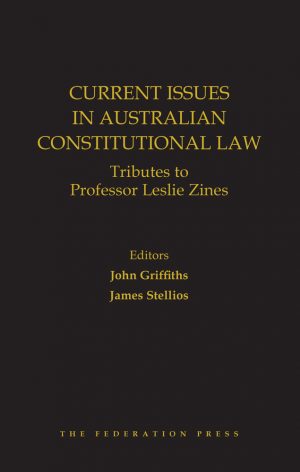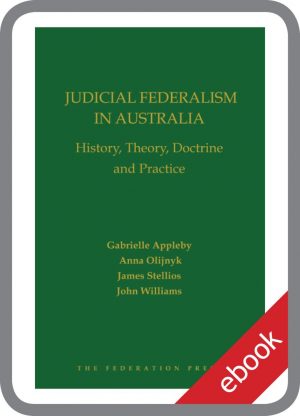The Australian High Court has implied from Chapter III of the Constitution significant protections for judicial independence and fair trial processes. In the last 25 years, these protections have been extended to the judiciaries of the Australian States with often-overlooked consequences for the operation of the Australian federation. Chapter III protections perform an important role in safeguarding individual liberties in a system largely bereft of constitutional rights protections. But they have also frustrated, or mandated substantial amendment to, a number of legislative initiatives.
Unsurprisingly then, Chapter III is the site of significant constitutional disagreement. Australia’s second century has heralded heightened tension between governments and the courts over the proper scope of the limitations derived from Chapter III. These limits are some of the most dynamic in Australian constitutional law.
To inform and illuminate these ongoing debates, Judicial Federalism in Australia: History, Theory, Doctrine and Practice provides a holistic analysis of the federal influence of Chapter III. It considers the historical underpinnings of the Chapter, tracing its development from the colonial justice system through the convention debates and into the first years of Federation. It then provides an overview of the theoretical and doctrinal development of Australia’s Chapter III jurisprudence as it relates to the States and Territories and how it has affected the operation of the federation. Finally, the book provides, for the first time, an empirical study of the effect of the Court’s Chapter III jurisprudence on the development of State and Territory policies, focusing on anti-organised crime initiatives, the introduction of administrative super tribunals and specialist courts such as drug courts and Indigenous sentencing courts.







